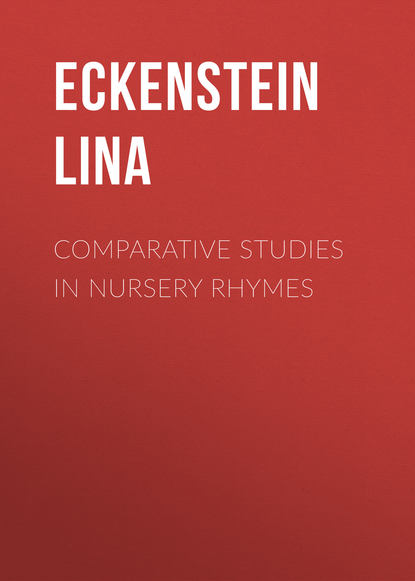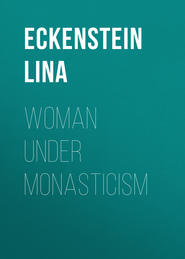По всем вопросам обращайтесь на: info@litportal.ru
(©) 2003-2024.
✖
Comparative Studies in Nursery Rhymes
Настройки чтения
Размер шрифта
Высота строк
Поля
"Martin is an ass, he pulls the cow by the tail," that is, "he has no money in his purse."
These various survivals support the view that the ass in Western Europe somehow got mixed up with the birds. When and how this came about is difficult to tell. The representatives of Christianity were in a position to accept the feast of the ass, since the ass figured largely in the Old and the New Testaments. But we do not know if they consciously did so, and introduced the ass in the place of another animal, or if they took over an animal which had before their time been accepted in the place of a bird.
CHAPTER XVII
THE ROBIN AND THE WREN
ONE side of the subject remains to be discussed. It is the relation of the robin to the wren. Many custom rhymes, legends, and nursery pieces name the birds together, and they sometimes enlarge on the jealousy of the birds, and on the fact that their presence was reckoned mutually exclusive. Perhaps the birds, looked at from one point of view, were accounted the representatives of the seasons, and, as such, came and went by turns.
The robin and the wren are mentioned together in several custom rhymes, some of which mention other birds also: —
The robin redbreast and the wren
Are God's cock and hen.
(1826, p. 292.)
In Warwickshire they say: —
The robin and the wren
Are God Almighty's cock and hen;
The martin and the swallow
Are God Almighty's bow and arrow.
(1870, p. 188.)
In Lancashire this takes the form: —
The robin and the wren are God's cock and hen;
The spink and the sparrow are the de'il's bow and arrow.
(1892, p. 275.)
This association of the sparrow with the bow and arrow reappears in some nursery pieces, as we shall see later.
The robin and the wren are coupled together also in the following rhyme from Scotland, which has found its way into some modern English nursery collections: —
The robin redbreast and the wran
Coost out about the parritch pan;
And ere the robin got a spune
The wran she had the parritch dune.
(1870, p. 188.)
The Robin's Testament already quoted concludes with anger on the part of the robin at the entrance of the wren, whose appearance heralds his death. Other pieces describe the inverse case, when the wren dies in spite of the robin's efforts to keep her alive. This conception forms the subject of a Scottish ballad called The Birds' Lamentation, which is included in the collection of David Herd of the year 1776. It contains the following lines: —
The Wren she lyes in Care's bed, in meikle dule and pyne, O!
Quhen in came Robin Red-breast wi' sugar saps and wine, O!
– Now, maiden will ye taste o' this? – It's sugar saps and wine, O!
Na, ne'er a drap, Robin, (I wis); gin it be ne'er so fine, O!
– Ye're no sae kind's ye was yestreen, or sair I hae mistae'n, O!
Ye're no the lass, to pit me by, and bid me gang my lane, O!
And quhere's the ring that I gied ye, ye little cutty quean, O!
– I gied it till an ox-ee [tomtit], a kind sweat-heart o' myne, O!
The same incidents are related of real birds in the toy-book called The Life and Death of Jenny Wren, which was published by Evans in 1813 "for the use of young ladies and gentlemen: —
A very small book at a very small charge,
To teach them to read before they grow large."
The story begins: —
Jenny Wren fell sick upon a merry time,
In came Robin Redbreast and brought her sops and wine;
Eat well of the sop, Jenny, drink well of the wine.
Thank you Robin kindly, you shall be mine.
The wren recovered for a time, but her behaviour was such as to rouse the robin's jealousy. She finally died, and the book concludes with the lines: —
Poor Robin long for Jenny grieves,
At last he covered her with leaves.
Yet near the place a mournful lay
For Jenny Wren sings every day.
It was an ancient superstition that the robin took charge of the dead, especially of those who died by inadvertence.
The proposed union of the robin and the wren forms the subject also of a story that was taken down from the recitation of Mrs. Begg, the sister of the poet Burns. She was under the impression that her brother invented it. It describes how the robin started on Yule morning to sing before the king, and of the dangers, in the form of Poussie Baudrons, of the grey greedy gled, of Tod Lowrie, and of others, he encountered by the way. He sang before the king and queen, who gave him the wee wren to wed. Then he flew away and sat on a briar (1870, p. 60). There is no sequel.
In all these stories the wren is described not as a cock-bird, but as a hen-bird, which is incompatible with the idea of kingship that is expressed by the bird-chants. Perhaps the idea of the kingship is the older one. For in the legend told in the Isle of Man as an explanation of the custom of killing the wren, this bird is described as a fairy, that is, of the female sex, and legends that are intended to account for a custom are necessarily of a more recent date than the custom which they explain. The wren in Normandy also is sometimes spoken of as a hen-bird, La poulette du bon Dieu, God Almighty's hen. One custom-rhyme current in Scotland directly associates the bird with the Lady of Heaven: —
Malisons, Malisons, mair than tens,
That harry the Ladye of Heaven's hen.
(1870, p. 186.)
There is another toy-book relating the proposed union of the robin and the wren, which leads up to the death of the robin. It is called The Courtship, Marriage, and Picnic Dinner of Cock Robin and Jenny Wren, and was first issued by Harris in 1810. In this book other animals took part in the ceremony. The cock blew the horn, the parson rook carried Mother Hubbard's book, the lark sang, the linnet, the bullfinch, and the blackbird all officiated. A picnic dinner followed, to which the raven brought walnuts, the dog Tray brought a bone, the owl brought a sack of wheat, the pigeon brought tares, and so forth. The enjoyment was at its height —
When in came the cuckoo and made a great rout,
He caught hold of Jenny and pulled her about.
Cock robin was angry and so was the sparrow,
Who now is preparing his bow and his arrow.
His aim then he took, but he took it not right,
His skill was not good, or he shot in a fright,
For the cuckoo he missed, but cock robin he killed,
And all the birds mourned that his blood was so spilled.
The cuckoo, it will be remembered, was the bird of the god Thor, and the enemy of matrimonial bliss.
This story of a bird-wedding does not stand alone. From France and Spain come a number of pieces which similarly describe the proposed wedding of birds and end in disaster. In Languedoc one is called Lou mariage de l'alouseta, "the wedding of the lark." It begins: —
Lou pinson et l'alouseta
Se ne voulien maridà.
(M. L., p. 490.)






